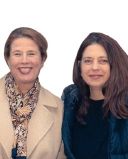Trust
Don't Trust Your Feelings!
The focus on authenticity may be leading us astray
Posted December 29, 2017
I don’t trust my inner feelings
Inner feelings come and go
-Leonard Cohen
Years ago when I (Gillian) was in graduate school a friend asked me how things were going with my supervisor. I told her that he had advised me “to do whatever I felt.” Without a pause she said, “ That kind of advice has ruined a generation.” We laughed at the time and in my case the direction was actually fruitful. However, as I have moved through life, it has been become evident that in many ways her witty retort was correct.
Emerging from the 1960’s counter-culture and certain schools of psychology, the focus on anchoring in emotions has had a number of unexpected consequences. One is that ideals of maturity rooted in religious and, philosophical traditions seem to have been lost. From that point of view a mature person does not simply act on impulse or from emotion. Rather they learn to refine and witness their emotions – especially the ones which can be problematic and harmful to their larger life goals and relationships. By doing this, they are able to take a broader and longer view taking into account the good of their family and community alongside their own desires and wishes.
Now this may sound very stuffy, but even at the basic level related to such tasks as trying to gain employment, we see this problem manifesting. With sharp humour author Karen Kelsky advises those seeking jobs in the academy that “Yourself is the Last Person You Should Be” in job interviews (86-90). Rather, as she writes in “The Professor is In” the applicant needs to craft a workable professional persona. Not to do this, according to Kelsky, is to self-juvenilize and appear to be lacking in maturity, confidence and competence.
A growing number of those who work in the field of psychology, psychotherapy and spiritual care are acknowledging that we are no longer facing a culture based on strict personal limitations and suppression of feelings, as was the case in the days of Freud. Rather we are living in a culture with an expectation to be authentic and expressive in all life situations – quite independent of context or consequences. Problems with emotional self-regulation, addiction and psychic fragmentation are now rapidly replacing the neurotic personality who was seeking relief in emotional expression from societal obligations.
In his book Stand Firm: Resisting the Self-Improvement Craze, the Danish philosopher and psychologist Svend Brinkmann addresses the more problematic side of this ‘cult of emotional authenticity’, encouraging us to stand firm in higher values and ‘practice keeping our emotions under control.’ While his ideas emerge from Greek philosophical school of stoicism this approach is found in many of the world’s Wisdom Traditions.
Philosophical and religious traditions offer a variety of approaches that can contribute to healthy levels of mental and emotional self-regulation. These include mindfulness, meditation, contemplation embedded in a worldview that is not simply focused on the desires of the individual. A mind that is left undeveloped (or not attended to) is viewed as potentially our worst enemy. An uncultivated mind is understood as being a sure cause of mental pain and anxiety. Yet the same mind that is a source of suffering can also be the means of attaining a level of mental health and dignity as human beings.
Arising out of this perception of the dual nature of the mind, spiritual traditions have developed a rich toolkit of practices aimed at cultivating capacities such as empathy, compassion and higher forms of consciousness. These philosophies of the mind and emotions are grounded in ideas of a well -lived life rather that just the desires of the moment. In the next few installments of this blog we will be looking at examples from the world’s religious and philosophical traditions and see what they have to say about “doing what we feel.”
References
Brinkmann, Svend. Stand Firm. Resisting the Self Improvement Craze. 2017. Cambridge: Polity Press.
Kelsky, Karen. The Professor is In. The Essential Guide to Turning Your Ph.D. into a Job. 2015. New York: Three Rivers Press.


